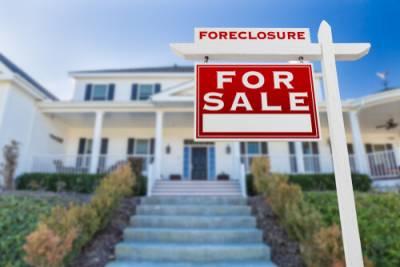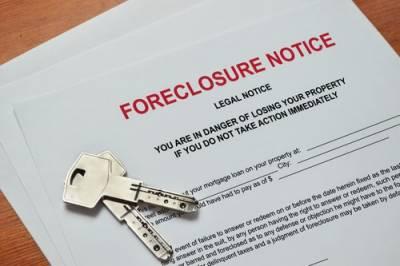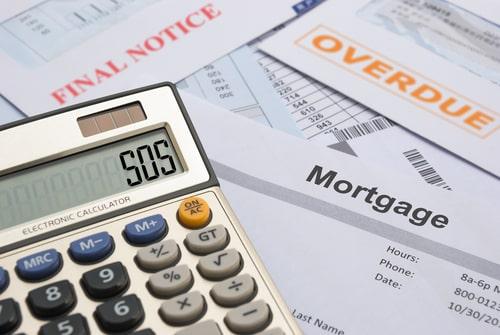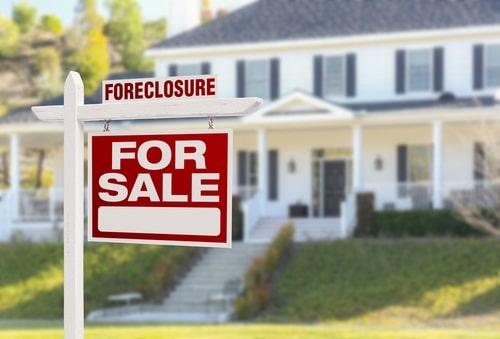1512 Artaius Parkway, Suite 300,
Libertyville, IL 60048
Call for a FREE Phone Consultation
847-549-0000
Video Consultations Also Available
 Spanish
Spanish Cantonese
CantoneseServing Clients Across 7 Illinois Locations
Recent Blog Posts
Zombie Properties on the Rise: Two Ways to Avoid Foreclosure
 “Zombie foreclosures” in Illinois are haunting homeowners well into the holiday season and Illinois has the fourth overall number of zombie foreclosures in the United States. Perhaps you are facing this situation and need a real estate attorney to avoid losing your home to foreclosure. Or worse, maybe you already lost your home to foreclosure and are just finding out that outstanding debts on the property are still your responsibility. At Newland & Newland, LLP, we work tirelessly to keep you from losing your home in the first place by finding solutions to try to prevent foreclosure.
“Zombie foreclosures” in Illinois are haunting homeowners well into the holiday season and Illinois has the fourth overall number of zombie foreclosures in the United States. Perhaps you are facing this situation and need a real estate attorney to avoid losing your home to foreclosure. Or worse, maybe you already lost your home to foreclosure and are just finding out that outstanding debts on the property are still your responsibility. At Newland & Newland, LLP, we work tirelessly to keep you from losing your home in the first place by finding solutions to try to prevent foreclosure.
What is a Zombie Foreclosure?
Zombie foreclosures tend to stick around because the title of the house was never transferred from the original owner to the bank or the new homeowner. Some residents in Illinois are being billed for overgrown weeds and demolition costs on properties they thought they no longer owned. It is always good practice to check public records to make sure the deed is transferred to the new owner, even if you moved out of your home due to foreclosure.
Are You Facing Foreclosure Due to Lender Errors?
 Buying your home is probably one of the biggest investments you have made. As life would have it, things happen, and you have fallen behind on your mortgage payments. You may be in default or foreclosure proceedings are underway. You should seek out help to protect your home and your credit.
Buying your home is probably one of the biggest investments you have made. As life would have it, things happen, and you have fallen behind on your mortgage payments. You may be in default or foreclosure proceedings are underway. You should seek out help to protect your home and your credit.
Foreclosure Spike
The foreclosure process often starts when you receive a default notice from the lender after missing three mortgage payments in a row. In just the last quarter, lenders have started the foreclosure process on 67,249 properties across the United States. That is a 167 percent jump from a year ago. A foreclosure can trigger a lower credit score and make it harder for you to get financing in the future.
For many of us, being able to buy our own home came with hard work and sacrifice. That is why there are federal regulations in place to help homeowners keep their homes. It can be a very complex process. Here are the three key phases of the process:
Paranormal Activity in a New Home: Illinois Law Regarding Stigmatized Houses
 Spooky homes and dark tales abound this time of year. But if your dream of homeownership has suddenly left you seeing ghosts, you may feel like someone played a trick on you. Selling and buying real estate can be complex, and disclosure laws can be equally perplexing. But in Illinois, it is your responsibility as the buyer to find out if the house you wish to buy has a tragic history or spirits luring inside.
Spooky homes and dark tales abound this time of year. But if your dream of homeownership has suddenly left you seeing ghosts, you may feel like someone played a trick on you. Selling and buying real estate can be complex, and disclosure laws can be equally perplexing. But in Illinois, it is your responsibility as the buyer to find out if the house you wish to buy has a tragic history or spirits luring inside.
What is a Stigmatized House?
A seller in Illinois is required to disclose any physical defects the property may have. The law does not require the seller, listing brokers, or agents to disclose anything that may cause a stigma for the property. Stigmatized homes are those that some people find undesirable because emotionally upsetting events such as murder, suicide, or sexual assault have occurred at the home. Haunted houses fall under the same stigmatized category.
Pros and Cons of Buying a “For Sale By Owner” Home
 The current real estate market is making it harder to find the perfect new home than most people are expecting. Let’s assume, however, that you found the right house, and you are ready to make an offer, but your real estate agent tells you that the home is an FSBO. You might recognize that abbreviation to mean “for sale by owner,” but do you understand the effects that a sale by the owner can have on your homebuying experience? Selling an FSBO property can be tricky, but so can buying one. Here are a few things you should know ahead of time.
The current real estate market is making it harder to find the perfect new home than most people are expecting. Let’s assume, however, that you found the right house, and you are ready to make an offer, but your real estate agent tells you that the home is an FSBO. You might recognize that abbreviation to mean “for sale by owner,” but do you understand the effects that a sale by the owner can have on your homebuying experience? Selling an FSBO property can be tricky, but so can buying one. Here are a few things you should know ahead of time.
Advantages of Buying an FSBO Home
A “for sale by owner” (FSBO) home is sold by the homeowner with no help from a broker or listing agent. This reduces the commission fees for the seller, thereby allowing them to pocket a larger percentage of the sale price. As a buyer, you will still be able to secure a commission for your agent, but there are a few advantages that buying an FSBO property offers you, including:
4 Dos and Don'ts If You Are Behind on Your Mortgage and Facing Foreclosure
 While the specifics of mortgage loans—and the associated paperwork—can be quite complicated, one thing is easy to understand: If you do not make your scheduled payments, your lender will eventually file a foreclosure action and take back your home. Just to be clear, foreclosure is the legal process that a lender uses to take possession of a property from a borrower who did not keep up with their obligations as specified in the mortgage loan agreement. Other things could cause a lender to initiate foreclosure, but the vast majority of foreclosures stem from borrowers defaulting on their payments.
While the specifics of mortgage loans—and the associated paperwork—can be quite complicated, one thing is easy to understand: If you do not make your scheduled payments, your lender will eventually file a foreclosure action and take back your home. Just to be clear, foreclosure is the legal process that a lender uses to take possession of a property from a borrower who did not keep up with their obligations as specified in the mortgage loan agreement. Other things could cause a lender to initiate foreclosure, but the vast majority of foreclosures stem from borrowers defaulting on their payments.
The process of foreclosure can be overwhelmingly difficult for many homeowners, and it is extremely easy to make expensive mistakes under such stress. An error in the process could cost you a great deal, but if you are aware of where most people make mistakes, you can be sure to avoid them. A qualified foreclosure defense lawyer can also help.
Could Defaulting on a Second Mortgage Lead to Foreclosure?
 Since the housing bubble burst over a decade ago, the thought of foreclosure has become a near-constant concern for homeowners across the country. Those dealing with financial struggles may be worried that late or missed mortgage payments will lead to them losing their homes. For those who have refinanced or obtained a second mortgage on their homes, things are often uncertain, especially as it pertains to what happens if they default on a second or additional mortgage. If you are in such a situation, a qualified foreclosure defense lawyer can help you understand your available options.
Since the housing bubble burst over a decade ago, the thought of foreclosure has become a near-constant concern for homeowners across the country. Those dealing with financial struggles may be worried that late or missed mortgage payments will lead to them losing their homes. For those who have refinanced or obtained a second mortgage on their homes, things are often uncertain, especially as it pertains to what happens if they default on a second or additional mortgage. If you are in such a situation, a qualified foreclosure defense lawyer can help you understand your available options.
What You Should Know About Second Mortgages
Any loan that qualifies as a mortgage is considered a secured debt. This means the loan is secured by collateral, and in the case of a mortgage loan, the collateral is the home itself. If you default on your mortgage, the lender can foreclose on the home and take the house. This applies to the mortgage that allowed you to buy the home as well as any subsequent mortgages. It also applies to home equity loans taken out with the home as collateral.
UPDATE: Can a Home Closing Be Completed Digitally?
 Originally published: October 6, 2021 -- Updated: June 25, 2022
Originally published: October 6, 2021 -- Updated: June 25, 2022
Last fall, we shared some of our thoughts about digital closings for residential real estate transactions and how they started to become popular during the Coronavirus pandemic. As concern about the virus slowly decreases—although it will probably never go back to pre-crisis levels—it appears that electronic real estate closings are here to stay.
The Benefits of eClosings
In most cases, originating a traditional mortgage takes roughly 30 days from the initiation of the application to closing. As more and more digital lending platforms emerge, the use of artificial intelligence and data processing allows lenders and borrowers to remove a number of manual steps from the process of fulfillment.
Due Diligence That Must Done in a Real Estate Transaction
 Investments in real estate can be very lucrative. However, there are a variety of concerns that will need to be addressed when purchasing real property. If a buyer will be assuming ownership of property that tenants currently occupy, they will need to be prepared to assume existing leases and understand any other contracts that are in place. Those who are planning to embark on a real estate development project will need to ensure that they have the proper construction permits and are in compliance with all applicable laws and regulations. To ensure that all of these issues will be addressed correctly, it is crucial to work with an attorney who can help perform due diligence during a transaction.
Investments in real estate can be very lucrative. However, there are a variety of concerns that will need to be addressed when purchasing real property. If a buyer will be assuming ownership of property that tenants currently occupy, they will need to be prepared to assume existing leases and understand any other contracts that are in place. Those who are planning to embark on a real estate development project will need to ensure that they have the proper construction permits and are in compliance with all applicable laws and regulations. To ensure that all of these issues will be addressed correctly, it is crucial to work with an attorney who can help perform due diligence during a transaction.
Issues to Address When Performing Due Diligence
An investor can protect their financial interests by gathering all information needed to ensure that they fully understand the risks and benefits of a commercial real estate transaction. In many cases, a person will have 30 days or less to perform due diligence, so it is essential to act quickly to uncover any issues that may affect a transaction or impact an owner’s ability to receive the proper return on their investment.
Commercial Lease Modifications for Tenants Affected by COVID-19
 Since the onset of the COVID-19 pandemic in 2020, businesses in Illinois and throughout the United States have encountered financial difficulties. As the country is beginning to return to normalcy, some businesses have been able to resume their regular activities and continue operating successfully. However, many businesses are still struggling as they determine how to respond to the loss of revenue that occurred due to the pandemic. These issues have affected many commercial leases, and both landlords and tenants may need to determine how to address situations where a business has been unable to pay rent on a short-term or long-term basis.
Since the onset of the COVID-19 pandemic in 2020, businesses in Illinois and throughout the United States have encountered financial difficulties. As the country is beginning to return to normalcy, some businesses have been able to resume their regular activities and continue operating successfully. However, many businesses are still struggling as they determine how to respond to the loss of revenue that occurred due to the pandemic. These issues have affected many commercial leases, and both landlords and tenants may need to determine how to address situations where a business has been unable to pay rent on a short-term or long-term basis.
Negotiating Lease Modifications for Commercial Landlords and Tenants
As commercial tenants have encountered financial struggles, this has put many landlords in a difficult position. While some landlords have pursued lease enforcement actions, others may have been hesitant to do so due to the difficulty of finding new tenants in the current marketplace. Rather than pursue evictions or take steps to terminate a lease, it may be beneficial for both parties to negotiate lease modifications that will allow a tenant to continue occupying a space as they attempt to address their ongoing financial issues.
Understanding How Foreclosure Works in Illinois
 If you are struggling to make your mortgage payments, the threat of losing your home can be a terrifying thought. Once a mortgage is in default, the lender can sue to have the right to sell the property in what is known as a foreclosure sale. In 2021, lenders initiated more than 92,000 foreclosures—the lowest number in many years. In fact, 2009 saw more than 2 million foreclosures initiated by lenders looking to resolve defaulted mortgages. If you are facing the potential foreclosure of your home, you should be sure to understand the procedures that will be followed and the legal options available to you.
If you are struggling to make your mortgage payments, the threat of losing your home can be a terrifying thought. Once a mortgage is in default, the lender can sue to have the right to sell the property in what is known as a foreclosure sale. In 2021, lenders initiated more than 92,000 foreclosures—the lowest number in many years. In fact, 2009 saw more than 2 million foreclosures initiated by lenders looking to resolve defaulted mortgages. If you are facing the potential foreclosure of your home, you should be sure to understand the procedures that will be followed and the legal options available to you.
The Foreclosure Process
When a mortgage has not been paid for several months and has fallen into default, a lawyer from the lending institution may begin a lawsuit by filing a complaint in court. After that, a summons and complaint are delivered by a process server or a sheriff. The summons is a notification of a court hearing, and it will specify when and where the hearing will be held. Within 30 days of receiving the summons, you must either file an answer and court appearance or a motion of your own.
 Stop Foreclosure
Stop Foreclosure




















